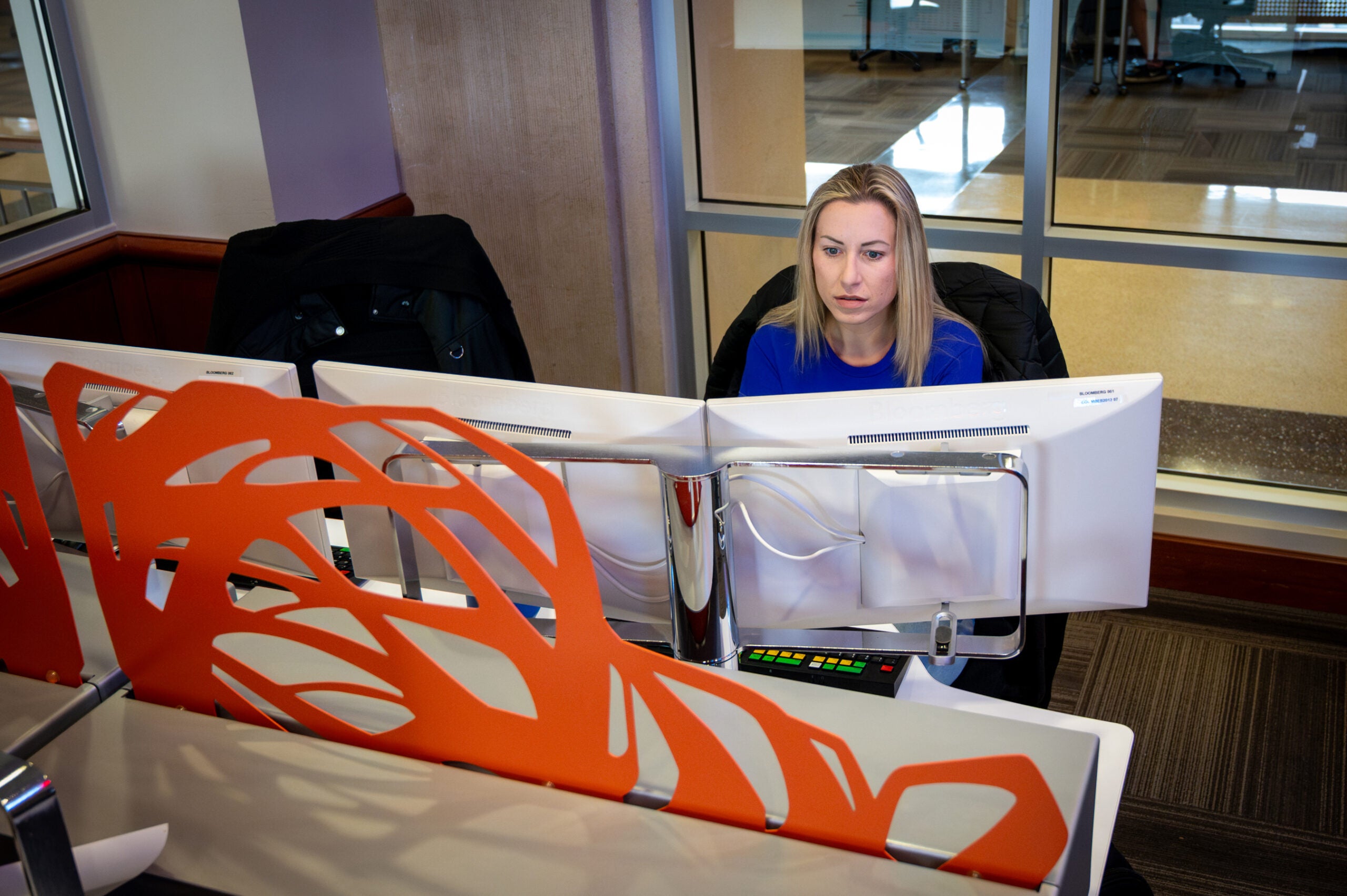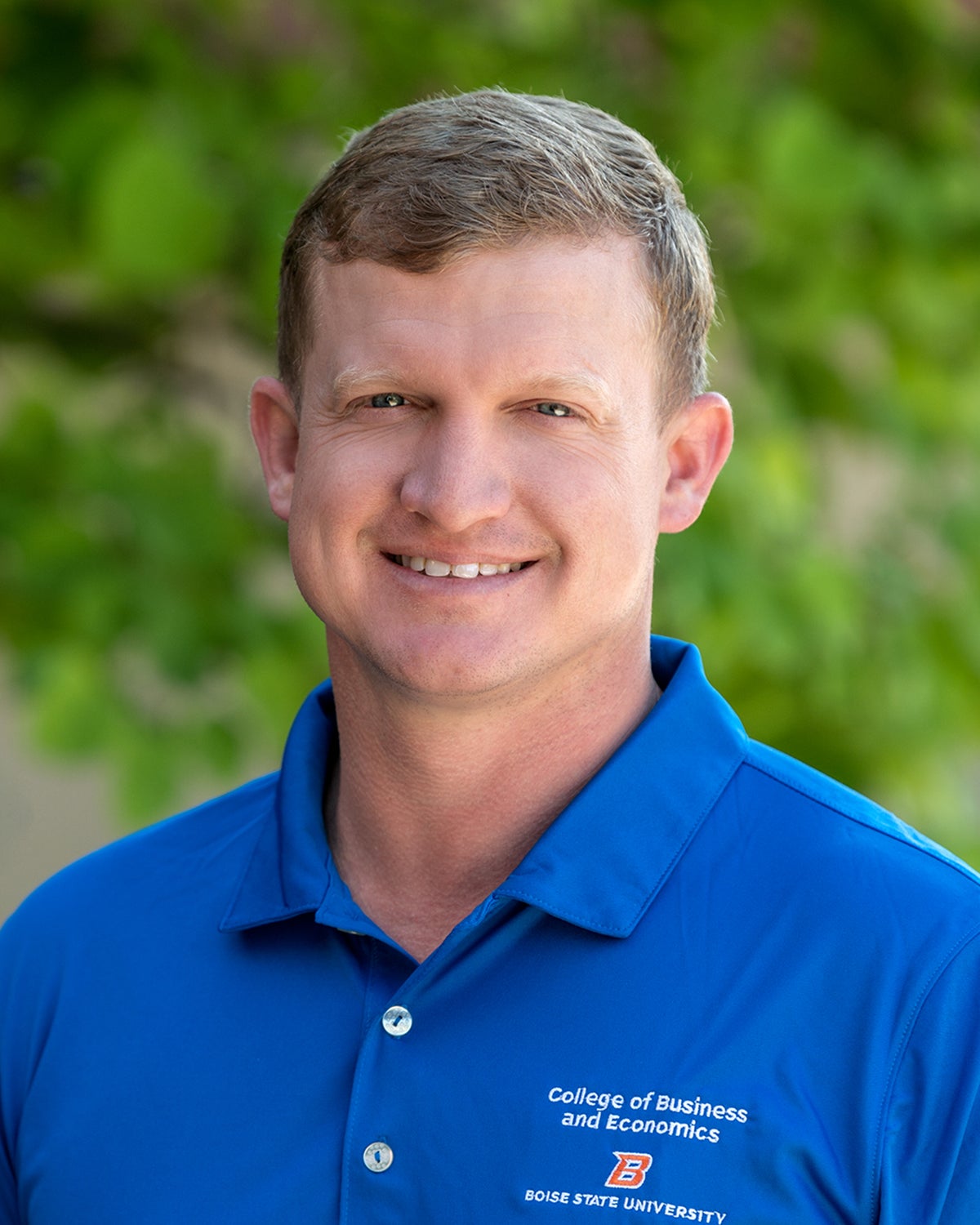
Students interested in launching tech startups can now earn college credit for taking part in Sandbox, a Boise State startup incubator program. Sandbox began at Brigham Young University in 2020 as a credit-earning capstone-style course that integrates into degree programs. After many participants successfully secured funding for their startups, Sandbox expanded to six additional universities. The program recently kicked off at Boise State, with student recruitment beginning in spring 2025 for the first class starting in the fall.

Chad Coffman, assistant professor of entrepreneurship in the Department of Management, is Boise State’s instructor of record for Sandbox.
“I was initially drawn to Sandbox by the remarkable success experienced by some of the participating teams. But I was sold on Sandbox once I fully understood the impact of this style of experiential learning on student educational outcomes,” he said. “The students that participate in this program, who don’t found life changing startups, are going to be exceptionally well-prepared to work in a tech industry that is evolving faster than ever before due to developments in artificial intelligence.”
The stats tell the same story. Collectively, Sandbox companies are valued at $149 million, with six ventures accepted into Y Combinator, the world’s most prestigious startup accelerator. Some notable venture-backed companies that found their start in Sandbox include Buster, Cheers, Devote, Lovage, Mindsmith, Relay, Stratus, Swipe and Zaymo. Even Sandbox participants who decide not to continue with their startups have an average 25% higher starting salary compared to non-Sandbox graduates. Alumni have been hired by companies such as Leland, Figma, Nike, Lucid, Google and NVIDIA.
Building startups at Boise State
After the spring recruitment session at Boise State, spearheaded by the College of Business and Economics and the Computer Science Department, a field of 208 interested participants was narrowed down to 32 through self selection after a series of in-depth assignments. These students will begin the intensive program in fall of 2025. The participants will work in small teams–typically two to three students–from different disciplines (entrepreneurship and computer science for example). Throughout fall and spring semesters, students will have remote expert instruction and one-on-one mentorship as they develop their startup. The program wraps up with a global demo day in spring 2026, where the students will pitch to a group of interested investors.
“Sandbox allows us to bring business and non-business students together in an exciting and intense entrepreneurial learning program aimed at starting real businesses,” said Mark Bannister, dean of the College of Business and Economics. “We are planting the seeds to grow the next generation of tech entrepreneurs who will make their mark on Idaho.”
Students earn 12-18 credits for taking part in Sandbox. Participation costs $2,500 per student, and Bannister has invested $100,000 to ensure the first cohort of students can participate at no additional cost beyond standard Boise State tuition. The dean is actively seeking philanthropic support to ensure future cohorts can enjoy the program at no additional cost.
“Participating students will gain invaluable experience, build life-changing networks and create businesses that launch their careers and have the potential to change Idaho and the world,” Bannister said. “We are assembling a group of partners who will help enable this vision.”